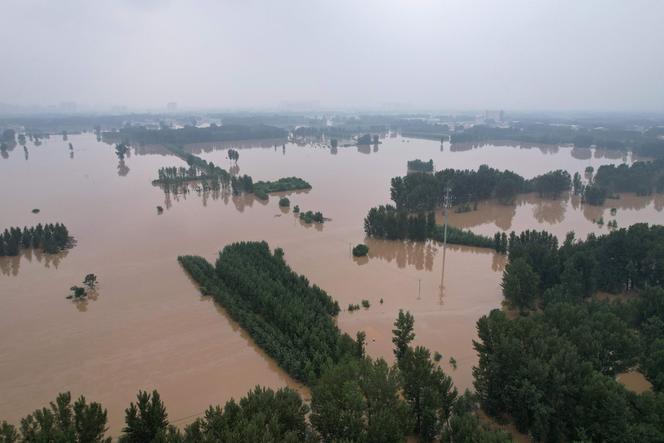


In the countryside in Hebei, the province surrounding Beijing, the shock caused by historic flooding that claimed dozens of lives has given way to bitterness and anger. On Wednesday, August 9, residents of Gaobeidian, a town within Baoding prefecture, south of Beijing, gathered outside an official building to protest the lack of response by the authorities. They were unceremoniously dispersed by police.
By that evening, the large square facing the local government offices was being protected by hundreds of agents, according to videos shared online. The previous day, similar scenes had unfolded in Bazhou, another flood-ravaged city further south. In one video, residents stand in front of shield-carrying police officers complaining of being pepper sprayed, chanting the slogan: "Give us back our homes!"
Now that the water has receded from most of the villages, the time has come for clean-up, damage assessment and requests for repairs. There has been a wide range of grievances: When the water arrived, residents blamed local authorities for their lack of preparation and failure to warn or evacuate their villages. Still, others were cleared in time: Hebei claims to have evacuated over a million people. Nonetheless, those who stayed behind have lamented the slow pace of the rescue effort, no doubt due to the scale of the disaster as Beijing recorded its heaviest rainfall in 140 years.
The extraordinary nature of this event notwithstanding, the stricken residents have recognized that their villages were "sacrificed." Located in "discharge zones" on the plains south of Beijing, the worst-affected areas had never before been so severely flooded. The difference was that, in the interim, the municipality of Xiong'an, located a little further east and home to numerous wetlands, had been chosen by Chinese President Xi Jinping to become a new city, aimed at accommodating institutions and businesses that would relieve Beijing's congestion. It was therefore never a question of allowing this area to be flooded.
According to state media, officials decided to open floodgates in seven flood-control zones to prevent rivers and reservoirs from overflowing in Beijing and the region's other metropolis, Tianjin. Hebei Communist Party chief Ni Yuefeng said he had ordered "the activation of flood storage and diversion areas in an orderly manner, to reduce pressure on Beijing's flood-control system and decisively create a 'moat' for the capital."
You have 54.78% of this article left to read. The rest is for subscribers only.
